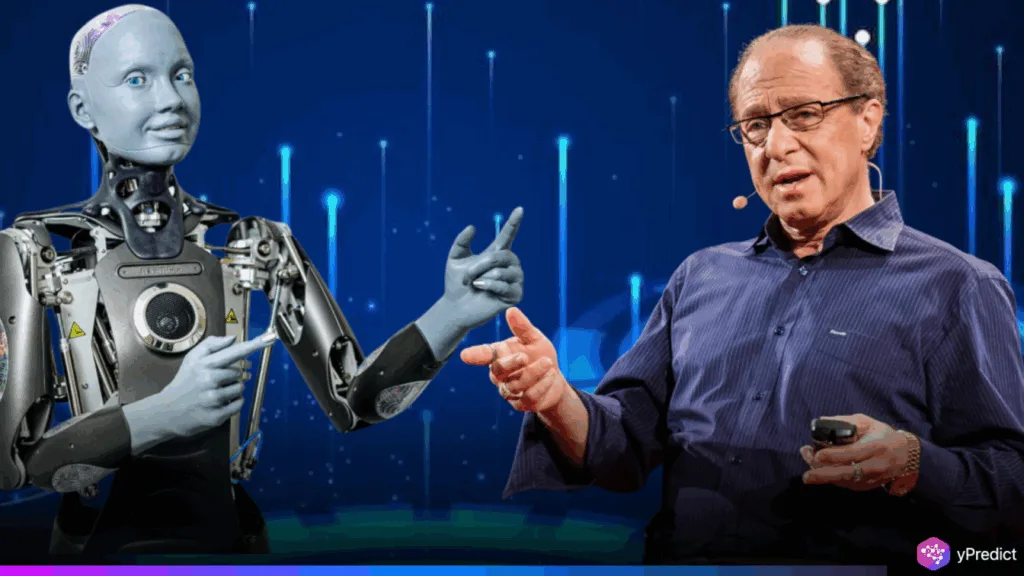
Beyond Imagination, the humanoid robotics startup co-founded by AI futurist Ray Kurzweil and scientist Harry Kloor, has announced a $100 million Series B funding round led solely by Gauntlet Ventures. The company is now valued at $500 million. Its humanoid robot, the Beyond Bot, is designed for deployment in industrial sectors, targeting labor shortages and manufacturing inefficiencies. The funding aims to accelerate development and enterprise adoption. With this investment, Beyond Imagination joins the growing wave of tech firms betting on AI-driven robotics to reshape the future of labor and automation across U.S. manufacturing.
Beyond Bot: Kurzweil’s Vision for Industrial AI Comes to Life
Beyond Imagination’s flagship robot, Beyond Bot, aims to transform industries by filling gaps left by the skilled labor shortage. The robot is being positioned for deployment in chip factories, pharma plants, and industrial manufacturing lines. Gauntlet Ventures co-founder Oliver Carmack sees the investment as a bet on reshaping American industry through robotics.
Unlike general-purpose robots, the developers built Beyond Bot specifically for factory environments and backed it with proprietary AI models. These models train for real-world tasks and optimize collaboration between machines and human operators. The robot integrates tightly with Aura, the company’s new operating system for intelligent manufacturing. Aura acts as a middleware layer, allowing humanoids, legacy machines, and humans to communicate and synchronize operations. This creates an integrated AI-driven production line.
Kurzweil, known for forecasting the technological singularity, believes humanoid robots are a natural next step in AI’s evolution. His startup’s approach differs from Tesla’s Optimus or Nvidia’s robotics efforts by focusing on compatibility with existing infrastructure. The funding from Gauntlet will be used to refine deployments, secure enterprise partnerships, and expand testing in live industrial settings. With enterprise readiness as the core focus, Beyond Imagination is building not just robots but the systems to make them scalable.
Investors Bet Big on Humanoid Robotics in AI Race
Humanoid robots are no longer just sci-fi. Major firms like Tesla, Meta, and Nvidia are investing billions into building functional AI-powered humanoids. Yet progress has been slow due to a disconnect between language-based AI systems and the physical challenges of the real world. Robotic systems require massive real-world data to function effectively, something companies like Beyond Imagination are aggressively pursuing.
The startup is developing more than hardware. Its Aura platform allows robots to work alongside people and legacy machinery in a synchronized environment. By creating an operating system for intelligent manufacturing, Beyond Imagination offers a complete package. Co-founder Harry Kloor emphasizes the importance of real-world adaptability in industrial use. The company has also built a high-profile advisory board including former Qualcomm CEO Paul Jacobs, motivational speaker Tony Robbins, and former Paramount Pictures chairman Jim Gianopulos.
With a $500 million valuation and $100 million in fresh capital, Beyond Imagination is becoming one of the more serious contenders in humanoid robotics. Gauntlet Ventures’ exclusive backing shows investor confidence in Kurzweil’s vision and the startup’s long-term strategy. As the race to deploy humanoids accelerates, Beyond Imagination’s real-world-first approach could give it a decisive edge.
Kurzweil’s AI Legacy Enters the Physical World
With strong financial backing and a bold vision, Beyond Imagination is positioning itself at the forefront of industrial robotics. Not just labs, Ray Kurzweil’s decades of AI foresight are now being tested in factories. By focusing on manufacturing and skilled-labor automation, the startup is solving real problems with AI-powered machines. Unlike many robotics startups chasing hype, Beyond Imagination is building functional systems designed for enterprise scale. The Beyond Bot and Aura platform promise not just innovation but also integration. If Kurzweil’s predictions hold true, this may be the beginning of an AI-powered industrial revolution, one that’s already taking shape.





